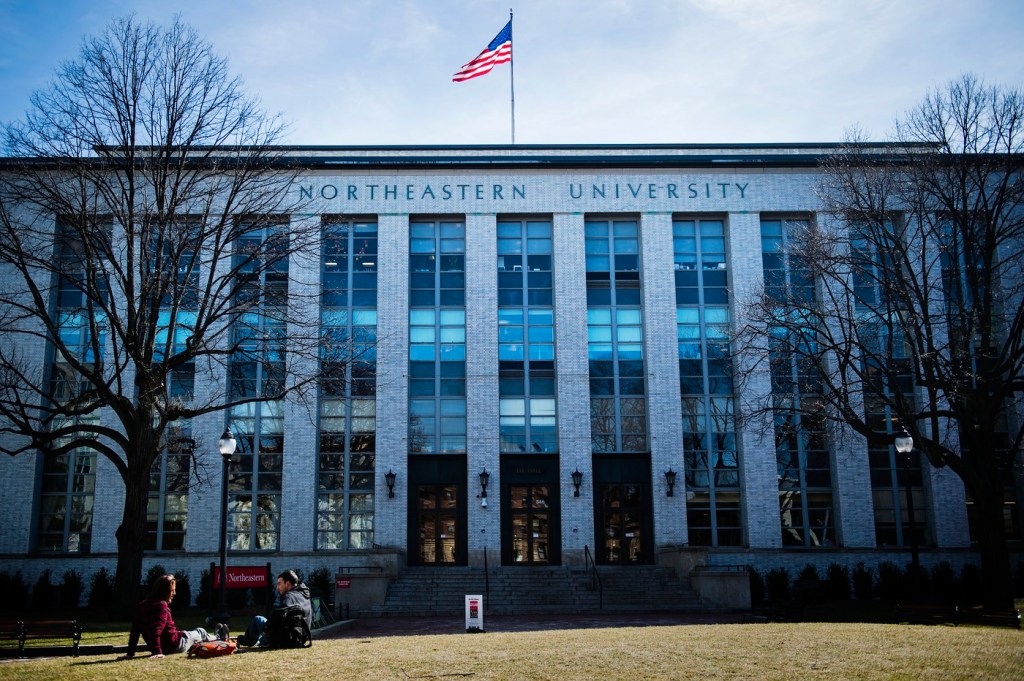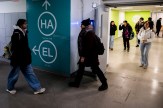Northeastern, Mass. universities file amicus brief against travel, refugee ban

Northeastern jointly filed an amicus brief on Friday afternoon in opposition to President Donald J. Trump’s executive order banning travelers and refugees of certain countries from entering the U.S.
Northeastern joins seven other Massachusetts colleges and universities—Boston College, Boston University, Brandeis University, Harvard University, Massachusetts Institute of Technology, Tufts University, and Worcester Polytechnic Institute, collectively, “amici”—in the brief filed with the U.S. District Court.
The civil case with which amici are aligning themselves lists eight plaintiffs, including Oxfam America, Inc. and two University of Massachusetts Dartmouth associate professors who were detained at Logan International Airport last weekend, against Trump, U.S. Customs and Border Protection, the U.S. Department of Homeland Security, and ranking officials in those departments.
A week ago, Trump signed a sweeping executive order that shut U.S. borders to immigrants and refugees from seven largely Muslim countries. The order suspended entry by all refugees from any country to the U.S. for 120 days, barred Syrian refugees indefinitely, and blocked entry into the U.S. for 90 days for citizens of Iran, Iraq, Libya, Somalia, Sudan, Syria, and Yemen.
As a result, numerous students, academics, and other travelers found themselves locked out of the country or detained at airports.
The amicus brief, which positions Northeastern and its counterparts across Massachusetts as non-litigants with a strong interest in the case, argues that the travel ban “imperils” the ongoing success and collaboration among global scholars.
“Amici’s ability to succeed as institutions of higher education depends, in large part, on the ability of students and scholars to collaborate across borders,” the brief reads. “The Executive Order at issue in this case imperils that exchange and will have damaging repercussions for amici, for all other similarly situated academic institutions, and, ultimately, for the nation and the world as a whole.”
On, Jan. 28, the day after Trump signed the executive order, immigration lawyers and the American Civil Liberties Union of Massachusetts filed a suit on behalf of the two UMass Dartmouth faculty who are Iranian nationals. The Boston Globe reported that, according to the suit, Mazdak Pourabdollah Tootkaboni and Arghavan Louhghalam had been detained at Logan International Airport for three hours that evening under Trump’s immigration order.
Northeastern President Joseph E. Aoun and members of the university’s senior leadership team issued a statement to the campus community on Saturday that reads in part, “While this situation is fluid and uncertain, let us be certain about our commitment to each other. Let us strengthen our resolve to be a welcoming community that embraces the immeasurable benefits of diversity and inclusion. All in our community—especially those who feel vulnerable as a result of this new paradigm—should feel safe and secure at Northeastern. We, the leadership of the university, stand with you and will pursue every means available to safeguard each of you—students, faculty, and staff.”
Early Sunday morning (Jan. 29), two federal judges granted a temporary restraining order against enforcing the president’s order in Boston. That judicial order expires Sunday.
U.S. District Court Judge Nathaniel Gorton is expected to deliver a decision on whether to extend the temporary restraining order it expires.
Update: On Friday, Judge Nathaniel Gorton decided not to extend the temporary restraining order. But hours later, a federal court judge in Seattle issued a ruling that temporarily blocks President Trump’s immigration order from being enforced nationwide. And on Sunday, a federal appeals court rejected a request by the Justice Department to immediately restore the executive order.





